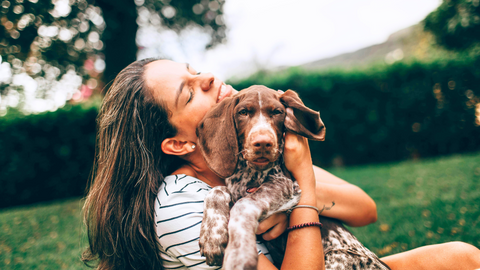Introduction
In recent years, the way people perceive and interact with their pets has evolved significantly. This shift in perception has given rise to two distinct terms: "pet parent" and "pet owner." While both terms refer to individuals who have animals in their care, the underlying philosophy and approach towards pet care and relationship differ considerably. This blog aims to explore the nuances between being a pet parent and a pet owner, shedding light on how these roles impact the lives of both pets and humans.
Defining the Terms
Pet Owner
Traditionally, the term "pet owner" has been used to describe individuals who keep animals primarily for companionship, protection, or other purposes. Ownership implies a sense of possession and responsibility, similar to owning any other property. Pet owners are typically focused on ensuring their pets are fed, sheltered, and healthy, fulfilling the basic needs of their animals.
Pet Parent
In contrast, the term "pet parent" suggests a deeper emotional connection and a more nurturing role. Pet parents often see their pets as integral members of the family, much like children. This perspective emphasizes emotional bonding, care, and a commitment to the pet's overall well-being beyond just physical needs. Pet parenting involves a more holistic approach to pet care, considering the emotional, social, and psychological aspects of the pet's life.
Key Differences Between Pet Parents and Pet Owners
Emotional Connection
Pet Owners: Often have a caring but somewhat detached relationship with their pets. The primary focus is on ensuring the pet's physical needs are met.
Pet Parents: Develop a deep emotional bond with their pets, treating them as family members. This connection often results in greater empathy and understanding of the pet's emotional and psychological needs.
Approach to Care
Pet Owners: Tend to focus on the basics such as feeding, pet grooming, and regular veterinary check-ups. Their approach is practical and centered on maintaining the pet hygiene and health.
Pet Parents: Go beyond the basics, incorporating activities that promote the pet's mental and emotional well-being. This can include regular playtime, social interactions with other pets, training classes, and even pet therapy sessions.
Decision Making
Pet Owners: Decisions are often practical and based on the owner's convenience and lifestyle. For example, choosing pet food might be based on cost and availability rather than nutritional value.
Pet Parents: Make decisions that prioritize the pet's best interest, often going the extra mile to ensure the pet's happiness and health. This might involve selecting the best quality food, arranging for pet sitters during vacations, or adapting their lifestyle to accommodate the pet's needs.
The Impact of These Roles
On Pets
Pets of Owners: Generally have their basic needs met but might lack the enrichment and emotional support that can enhance their quality of life.
Pets of Parents: Typically enjoy a higher quality of life with more attention to their emotional and social needs, leading to happier and more well-adjusted animals.
On Humans
Pet Owners: May experience companionship and joy from their pets but might not engage in the deeper emotional fulfilment that comes from a more involved relationship.
Pet Parents: Often find a profound sense of purpose and joy in caring for their pets. The strong bond can lead to significant emotional and psychological benefits, including reduced stress and increased happiness.
Why the Distinction Matters
Understanding the difference between being a pet parent and a pet owner is important for several reasons:
- Improved Pet Welfare: Recognizing pets as family members can lead to better care practices, enhancing the overall welfare of pets.
- Enhanced Relationships: A deeper bond between humans and pets can enrich both lives, fostering mutual affection and understanding.
- Informed Decisions: Knowing where you stand on the spectrum can help you make more informed decisions about pet care, ensuring you meet your pet's needs comprehensively.
Conclusion
Whether you identify as a pet parent or a pet owner, the most important aspect is the love and care you provide to your animal companions. However, embracing the pet parent philosophy can lead to a more enriching and fulfilling relationship for both you and your pet. By understanding the differences and striving to meet not just the physical but also the emotional needs of your pets, you can ensure a happier, healthier life for your furry family members.



